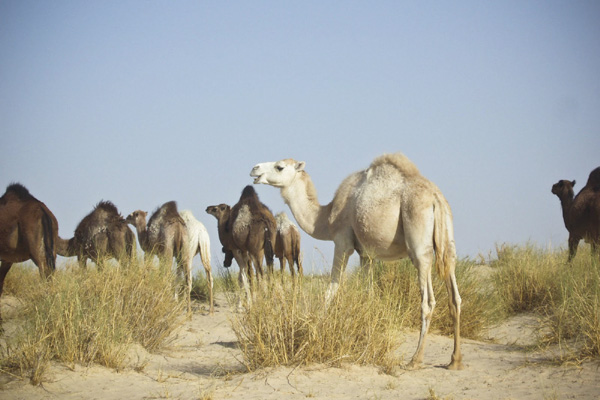
GCC ecotourism market expected to grow 6.2pc
DUBAI, October 4, 2016
Ecotourism in the GCC, which contributes 7 per cent of the region's total tourism revenue, is slowly becoming the prime focus of the region as it is expected to grow at a CAGR of 6.2 per cent from 2015 to 2020.
GCC’s gross domestic product (GDP) reached $1.64 trillion in 2013, of which the oil and oil subsidiary industries contributed around 50 per cent of the total GDP. FMI analysis reveals that further decline is expected in the region’s account surplus over 2014–2015, and a combination of offerings from the tourism and ecotourism sector can be relied upon to ensure the region’s GDP is balanced.
Lead analyst at FMI, Narasinha Varute, said: “Demand for ecotourism in GCC is subject to the collective offerings, services and innovations made by member nations to cater to the increasing volume of inbound tourists, and also to ensure a sustainable environment in future.”
The GCC ecotourism market is largely segmented into nature ecotourism, wildlife ecotourism and generic ecotourism. Among the abovementioned segments/offerings, the nature ecotourism segment accounted for over 60.6 per cent of the GCC ecotourism market share in 2014 and is expected to increase significantly at a CAGR of 4.7 per cent in the near future. Generic ecotourism is the fastest growing segment, increasing at a CAGR of 10.5 per cent between 2015 and 2020, as compared to the single-digit growth of the other segments.
Various factors expected to drive the ecotourism market in GCC nations include region-specific ethnic attractions, increasing government funding for tourism-related initiatives, city marketing, thematic sites & zones and advanced regional infrastructure. However, limited photography options with regard to landscape and scenery, low ecotourism awareness, extreme climate and political and economic instability in the region is expected to hamper the ecotourism market during the forecast period.
Tourist inflow from conventional locations such as Europe to non-conventional regions such as GCC is expected to contribute significantly to growth of the ecotourism market. On the basis of region of origin for international tourist arrivals at GCC, around 53 per cent are from the European region. GCC’s non-conventional destinations offer adventure and wildlife-related activities and packages, interaction with indigenous communities, shopping experiences and leisure and travel. GCC region’s ability to cater to a wide variety of tourist needs at a single location is boosting the demand for ecotourism to non-conventional destinations.
Country-wise, contributions include gross value added (GVA) generated through hotel stay, shopping & leisure, food & dining, airline expenditure and other goods & services. The highest GVA contributor is hotel stay, which currently accounts for approximately 40% of the total share, followed by shopping and leisure at 22 per cent.
Saudi Arabia, accounted for the largest revenue percentage at 30.9 per cent, compared to other member nations in 2014. Growth of the ecotourism market remained flat between 2012 and 2013 due to economic and political turmoil in the region. However, recent improvements in this regard is expected to drive the demand for ecotourism in the region in the near future. - TradeArabia News Service







